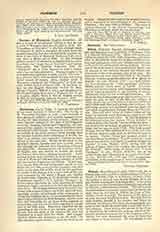

Florian, JEAN-PIERRE CLARIS, CHEVALIER DE, a French poet and novelist, b. at the chateau of Florian (Gard), March 6, 1755; d. at Sceaux, September 13, 1794. An glphan at an early he was brought up by his grandfather and studied at St-Hippolyte. At ten years of age he was taken by one of his uncles who was related to Voltaire, to the chateau of Ferney. The influence of the philosopher was already beginning to be felt by the child when he was sent in 1768 to the Duke of Penthievre, to act as a page. His sojourn at the chateau of Anet was very beneficial to him. Not only did the duke interest himself in his studies, and direct his readings, but he gave him good advice and made him promise that he would never write except with reserve and decency. Upon leaving the service of the Duke of Penthievre, he entered the military school at Bapaume, obtained a commission in the dragoons of Penthievre, but soon abandoned the army for literature and began to write comedies. He was elected to the Academie Franeaise in 1788. Arrested at Sceaux in 1793, he owed his life to the death of Robespierre, but he outlived the terrors of his imprisonment only a short time. To modern readers, Florian is chiefly known as the author of pretty fables well suited as reading for the young, but his contemporaries praised him also for his poetical and pastoral novels. He was the Boucher and the Watteau of the literature of the eighteenth century and it is remarkable that some of his graceful and delicate works were written in the midst of the Revolution. The list of his works is long. Worthy of mention are: two pastoral novels, “Galatee” and “Estelle”; two poetical novels, “Numa Poinpilius” and “Gonzalve de Cordoue”; three volumes of comedies, the principal being “Les Deux Billets”, “Le Bon Menage”, “Le Bon Pere”, “Jeannot et Colin”; two volumes of short stories, a few religious poems, like “Ruth” and “Tobie”, etc. Florian was very fond of Spain and its literature, doubtless owing to the influence of his mother, Gilette de Salgue, who was a Castilian. He was loved by his contemporaries as well for his character as for his writings, and he was much praised for his charity.
LOUTS N. DELAMARRE

